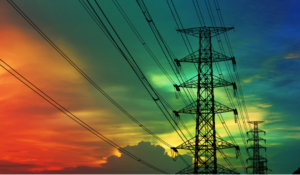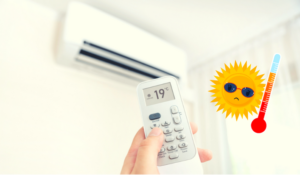If you are planning to use a propane generator during a power outage it’s good to have an idea of how much propane the generator will need. Fuel is often one of the first things to sell out during a disaster as most people turn to their generators to power electrical appliances. Propane generators are great for emergency preparedness because propane is more widely available than gasoline during times of emergency.
The propane calculator below can estimate how long your generator will run on propane. The calculator takes two inputs, the estimated power usage per hour (in watts), and the estimated total time of power usage (in hours).
The propane calculator will also estimate how long typical propane cylinders and tanks will last based on your energy consumption.
What Determines the Amount of Propane Your Generator Needs?
The amount of propane a generator needs depends on a few factors.
- How much work the generator is expected to do per hour.
- How many total hours the generator is expected to be on.
- The fuel efficiency of the specific generator.
Depending on the size of load you plan to run on the generator, the amount of fuel consumption will vary. Powering a couple of light bulbs requires less watts of energy than a washing machine, which uses less propane.
Of course, the longer you plan to run the generator, the more fuel you will need. Propane has a distinct advantage over gasoline and diesel in its long shelf life. As long as it’s stored correctly, it can last indefinitely in the tank.
Some generator models are more fuel efficient, requiring less propane to do the same amount of work. Backup generators for the house need to be able to handle a high running wattage. But you won’t always need to use the generator at maximum capacity which means it needs to be able to be fuel efficient when running at less than 50% of max capacity. If you are looking for a fuel efficient portable generator, consider a DuroMax duo fuel, as they are some of the most fuel efficient generators currently on the market.
How Long Will a Generator Run on Propane?
Even with variations in fuel efficiency, we can easily estimate the propane per hour that a generator uses. We will base our calculations on typical generator. Here is a list of assumptions that we will base our calculations on:
- It takes a typical generator 2 horse power to produce 1000 watts of power every hour.
- A single horsepower requires 10,000 BTUs of energy.
- There are 91,500 BTU per gallon.
- Each gallon of propane weighs 4.24 pounds.
If you know the appliances you will be running ahead of time, you can use the total running watts to calculate how much propane you’ll need per hour. If you aren’t sure which appliances you plan to run, you can use the generator’s rated running watts for this calculation.
Step 1: Convert watts per hour to horsepower
2 horsepower = 1000 watts/hour
1 horsepower = 1000 watts/hour ÷ 2
1 horsepower = 500 watts/hour
1 watt/hour = 1/500 horsepower
Step 2: Convert watts per hour to BTUs
1 horsepower = 10,000 BTUs
1 watt/hour = 1/500 horsepower = 1/500 x 10,000 BTUs
1 watt/hour = 20 BTUs
Step 3: Convert watts per hour to gallons of propane
1 gallon of propane = 91,500 BTUs
1 BTU = 1/91,500 gallons of propane
1 watt/hour = 20 BTUs = 20 x 1/91,500 gallons of propane
1 watt/hour = 1/4575 gallons of propane
Step 4: If your propane tank is a cylinder, you will need to measure it in pounds.
1 gallon of propane = 4.24 lbs
1 watt/hour = 1/4575 gallons of propane = 4.24 * 1/4575 lbs
1 watt/hour = 4.24 ÷ 4575 lbs
Number of lbs to run generator for 1 hour = number of watts x 4.24 ÷ 4575
Putting the Formulas to Use
Let’s say your total load is 5000 watts/hour and you would like to run your generator for 8 hours.
You can calculate the total propane from the formula in Step 3 above.
1 watt/hour = 1/4575 gallons of propane.
So 5000 watts per hour would need,
5000 watts/hour = 1/4575 gallons of propane x 5000 watts = 1.09 gallons per hour
You need 1.09 gallons of propane per hour if you are using 5000 watts per hour.
If you want to have enough fuel to run your generator for 8 hours. You will have to multiply 1.09 by 8 to get about 8.72 gallons of propane.
Running a load of 5000 watts for 8 hours would typically take 8.72 gallons of propane.
If you store propane in tanks that are measured in gallons then you can divide the storage tank size by the amount of propane needed per hour to get the total number of hours a full tank can last for you.
20-gallon propane tank would last: 100 ÷ 8.72 = 2.3 hours
100-gallon propane tank would last: 100 ÷ 8.72 = 11.5 hours
500-gallon propane tank would last: 500 ÷ 8.72 = 57.2 hours
If you store propane in portable cylinders that are measured in pounds, you’ll have to do one more conversion to know how many cylinders to prepare ahead of time.
Going back up to Step 4, we can use the formula:
Number of pounds to run generator for 1 hour = number of watts x 4.24 ÷ 4575
Simply multiply the total watts by 4.24 and divide by 4575 to get the pounds of propane you need per hour.
5000 watts per hour = 5000 x 4.24 ÷ 4575 pounds = 4.63 pounds
For each hour of energy output at 5000 watts, 4.63 pounds of propane gets used up
20-pound propane cylinder would last: 20 / 4.63 = 4.3 hours
40-pound propane cylinder would last: 40/ 4.63 = 8.7 hours
If you would like to use your generator for 8 hours a day at 5000 watts/ hour and need 5 days of backup power. Get the total number of hours you want to run the generator, 40 in this case. 40/ 4.3 = 9.3 which you can round up to 10 . To run 5000 watts for a total of 40 hours would take ten 20 lb cylinders.
Final Thoughts
Now that you know how long a propane tank can last, it should make it easier to manage your fuel supply ahead of time. As with all flammable fuels, store propane outside, upright on a level surface. Keep them out of the sunlight.
Propane has the special advantage over diesel and gasoline by having an indefinite shelf life. Unlike gasoline, propane is a clean burning fuel that’s better for the environment.
How does your propane estimate stack up against actual propane consumption? What kind of generator do you have? Leave us a comment below.






